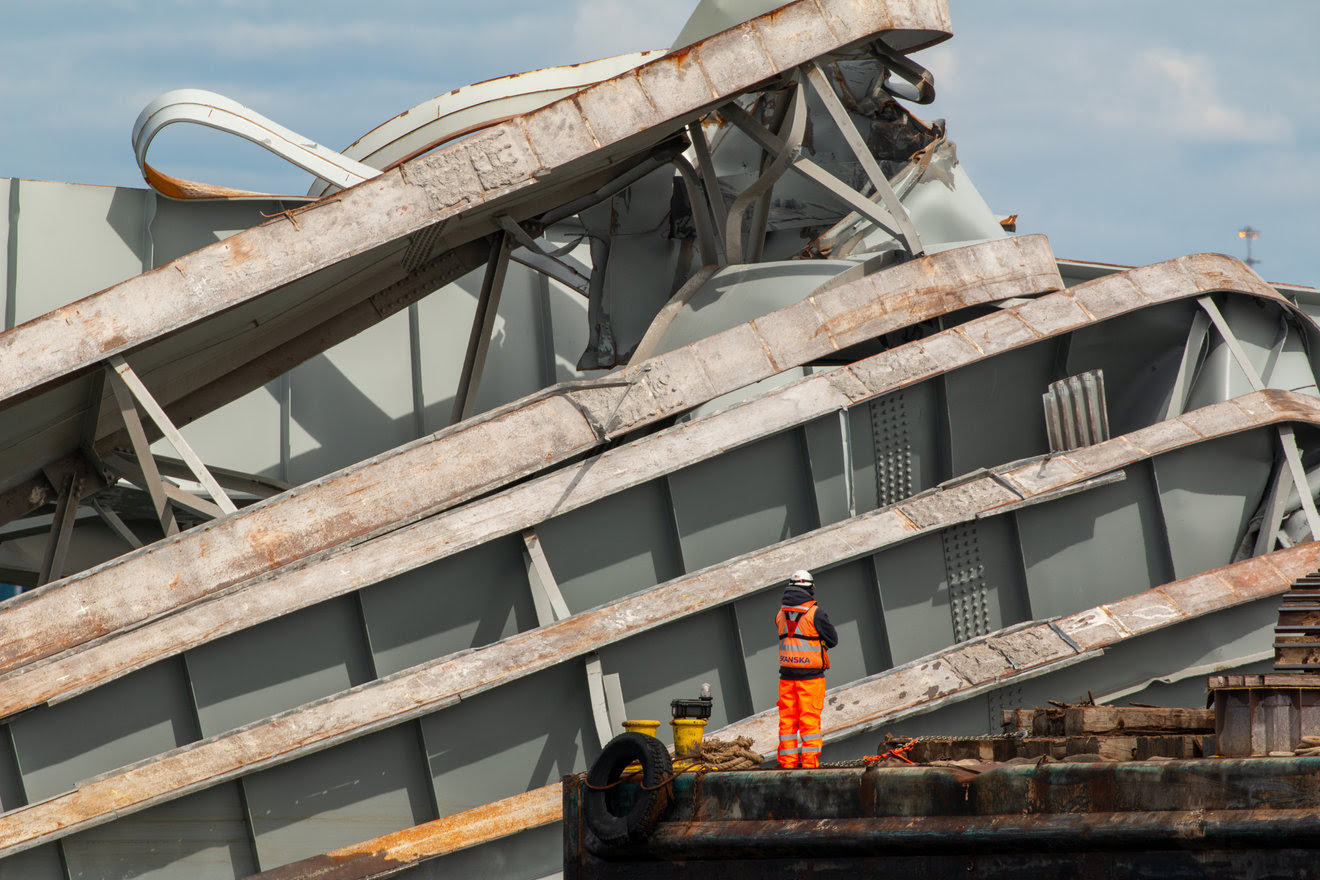DUNDALK, Md. – More than 1,000 small businesses have sought emergency federal loans to stay afloat following the March 26 collapse of the Francis Scott Key Bridge and closure of much of the Port of Baltimore, according to the U.S. Small Business Administration.
One of those seeking aid was Ricshay Johnson, the owner of Salon Ricshay on North Liberty Street in Baltimore, who suddenly found her client appointment calendar less crowded after the bridge collapse.
“I don’t know what that’s going to entail for me, or what that’s going to look like down the line,” said Johnson.
Johnson went to a Small Business Administration emergency relief center in Dundalk, one of three opened in the Baltimore region. The trip to the SBA center last week normally would have been impossible given her salon’s busy schedule. Many of Johnson’s customers, who come from outside Baltimore, complained about traffic since the bridge collapse, she said.

The cargo ship Dali lost power and collided with the Key Bridge, bringing down the main span of the 1.6-mile bridge into the Patapsco River, and clogging a main access point to the Port of Baltimore. Six construction workers died in the collapse. The potential economic impact is vast, since the Port of Baltimore directly and indirectly employs some 51,000 people, more than the population of Annapolis. The U.S. Army Corps of Engineers said it hopes to clear the channel and fully reopen the port by the end of May.
The Small Business Administration, which seeks to assist small businesses in times of distress, said businesses affected by the bridge collapse may apply for economic injury disaster loans, which have a 4% interest rate for small businesses and 3.25% rate for private nonprofit organizations. Businesses from Maryland, Washington D.C. and select counties from Delaware, Pennsylvania, Virginia and West Virginia are eligible. Businesses can wait a year before beginning to repay the loans, according to Yvette Jeffrey, Small Business Administration spokesperson.
The SBA opened emergency relief centers at the Community College of Baltimore County’s Dundalk Campus, the CareFirst Engagement Center on South Clinton Street in Baltimore, and at the Arundel Christian Church in Glen Burnie.
Juan Proaño, chief executive officer of The League of United Latin American Citizens, a civil rights organization, has raised more than $40,000 through an online GoFundMe fundraising campaign for the families of the six victims as of April 9. Proano, who accompanied President Joe Biden and Gov. Wes Moore on their April 5 visit to Baltimore, said these donations only meet some basic needs for the deceased workers’ families.
“These families are going to have to pay the electric bill by the end of the month, they’re gonna have to pay rent by the end of the month,” said Proano. “These Latino men are the primary wage earners in those homes, right. And so all of a sudden, you have children, you have wives, now, single parents, that are going to have to figure out how they’re going to move forward.”
Other businesses across the city are still navigating the uncertainty that comes with the collapse.
Brett Rhodes of Zeke’s Coffee in Northeast Baltimore said the loss of the bridge added an extra 20 minutes to their driving routes. “Now, if there’s a disabled vehicle or accident during the morning hours, which will definitely happen, [it] would be a disaster for our drivers,” Rhodes said in an email.
He quickly acknowledged the broader context of the tragedy. “The real victims here are the workers that were stuck on the bridge during the collapse,” Rhodes said. “Who am I to complain about an inconvenience for a couple of years?”


You must be logged in to post a comment.